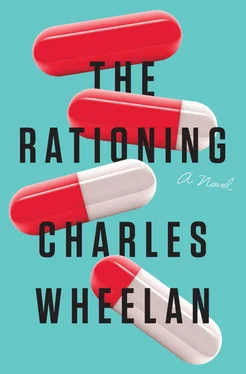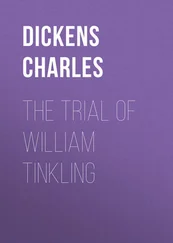I wandered over to the Chief of Staff and told her what I was thinking. Huke was not an expert on lurking viruses, but he did have an excellent grasp of the broader field. Maybe we were too deep in the rabbit hole and needed to pull our heads out and look around. Huke would be a guy who could help us do that. “Of course we should talk to him,” the Chief of Staff said. “We can bring him to Washington or we can fly you up there.”
“How do I do that?” I asked. I was still learning all the protocols.
“Go this afternoon, after this meeting,” she instructed. “We’ll get you an Air Force plane. Just let me know the closest airport.”
Huke called back just as the participants were making their way back to the Cabinet Room. He did not remember me; I had not expected that he would. I briefly explained the work I was doing at NIH and that we were facing a new threat from a lurking virus that could infect humans.
“That’s curious,” Huke said.
“Exactly,” I agreed. “It’s potentially dangerous. I’m hoping I could speak to you in person about it, as soon as possible.”
“I’m not an expert on lurking viruses,” he protested.
“I know, but we need to take a step back on this one. Our thoughts have gone stale.”
“Sure. I’m retired now, so you pick the time and place.”
Huke did not react when I asked if we could meet early the following morning. He knew enough about viruses to recognize that public health situations are often time-sensitive. I offered to meet him in a Hanover coffee shop, but Huke suggested that I come to his house instead.
While this conversation was going on, I got a surprising inbound text. It was from Sloan, my Dartmouth infatuation, whom I had last seen at a friend’s wedding six or eight months earlier. It said, “In DC. Can you get coffee?? So eager to see u.” The meeting had resumed in the Cabinet Room, so I stepped out of the room to send a quick reply. Sloan had that effect on me.
I DID NOT LEAK ANYTHING. THIS WAS THE CONCLUSION OF both congressional inquiries. My answers to the commissions were entirely truthful, if somewhat misleading. (In the eyes of the law, that is not a crime . ) Still, the reality is that my meeting with Sloan inadvertently set in motion a series of events that I deeply regret.
Sloan lived in New York City. We had drifted apart after graduation, but we still saw each other at weddings, reunions, and the like. We never dated in college, but we did “hook up” briefly during senior week—the week prior to our graduation from Dartmouth when classes were over, our diplomas had been earned, and we were left to do in seven days everything we wished we had done over the previous four years. Sloan and I had a long conversation after a class picnic on one of those June evenings when the sun seems to linger forever, the light getting softer and more beautiful before darkness finally falls and the temperature plunges. We were both drunk, not sloppily so, but enough to precipitate a long, meandering, lovely conversation about life’s big questions: our regrets at Dartmouth; our plans after graduation; the state of our families; the role that Turkey could play in promoting peace in the Middle East. (I said it was meandering.) Sloan leaned close to me, in part because it was getting cool, but also because our body language reflected the intensity of our conversation and the depth of the bond that we had built over four years—the kind of bond, really, that it’s hard to build at other points in life. And, as I mentioned, we were drunk. At one point two asshole lacrosse players began tossing beer at one another. I pulled Sloan out of the path of an arcing plastic cup of cheap beer and ended up with my arms wrapped around her from behind. My nose just dusted her hair and I could smell the flowery fragrance of her shampoo. I inhaled deeply.
I am a scientist, not a romance novelist. As a scientist, I can say that a hundred million years of natural selection was telling my body that I should reproduce, which tends to produce a physical reaction. A romance novelist might simply point out that my dick was harder than the pine picnic table. Sloan was wearing jeans; nothing made her look better or more alluring. When she sensed the physiological response of my reptilian brain, she pushed gently back against me, and that sensation—her clearly sexual response after my years of platonic longing—remains one of the more pleasant sensations I have experienced in life.
“Will you walk me home?” she asked.
My answer should be obvious. Our walk home has social significance because of two things that happened, which is why I have gone to great lengths to explain how the night unfolded. We headed from the picnic area toward Sloan’s off-campus apartment, but then took a detour onto a well-worn path that led through a small pine forest and up a hill to an open field that housed the college observatory. It was a lovely spot; the night was crisp and clear. The observatory was obviously there for a reason. We were hours from a major city, so the night sky was brilliantly illuminated. There is no better brew for inspiring contemplation about the meaning of life for a pair of twenty-two-year-olds than college graduation, alcohol, and the endless bright expanse of a starry night. “So tell me what you’re going to do with your life?” Sloan asked.
By then we were sitting on a bed of pine needles at the edge of the clearing. I was leaning against an old stone wall and Sloan was resting in my arms, which was both a natural continuation of what had happened at the picnic and an instinctive response to the crisp New Hampshire night. “I’m going to be a scientist,” I said. “And I want to teach at a place like this.” We loved Dartmouth. For all our griping over the years, we had talked often about some of our more inspiring professors and our unique opportunities to interact with them, rather than being treated like the academic equivalent of cattle, herded into a huge lecture hall to listen to a teaching assistant with a tenuous grasp of English.
“It’s an amazing lifestyle,” Sloan said. Only she would be prescient enough to think about lifestyle at that point. Our peers were rushing off to take jobs with hedge funds and investment banks, eagerly boasting about the ninety-hour weeks that they would work. It would take until our tenth reunion for many of them to admit that their lives were a wreck.
“What kind of lawyer are you going to be in twenty years?” I asked.
“I won’t be a lawyer,” she said emphatically.
“Does Harvard Law know that?” I asked. Sloan had been accepted to Harvard Law (and every other law school to which she applied). She had deferred for a year to travel and write columns for a small Vermont newspaper.
“I’m going to be a writer—journalism of some sort, probably political journalism,” she said. She had been the editor of the Dartmouth newspaper, so that was hardly a stretch.
“So why law school, then?” I asked.
“Because it will set me apart.” She paused, staring at the stars. “Because I’ll have some substantive knowledge, rather than just being able to write. There are lots of good writers in the world, and there are plenty of Harvard Law grads, but there aren’t many who are both.”
We sat at the edge of that clearing watching the stars for a long time. If I could relive several hours of my life, kind of like the play Our Town , these would be the hours I would choose. The night sky was indescribably beautiful. I was holding in my arms the girl I had both loved and lusted after for nearly four years, who nuzzled closer as I buried my face in her hair and ran my hand gently across her breasts. The college chapter of our lives was drawing to a successful close; we had everything to look forward to—both in the next hour or two, at least for me, and then beyond.
Читать дальше












